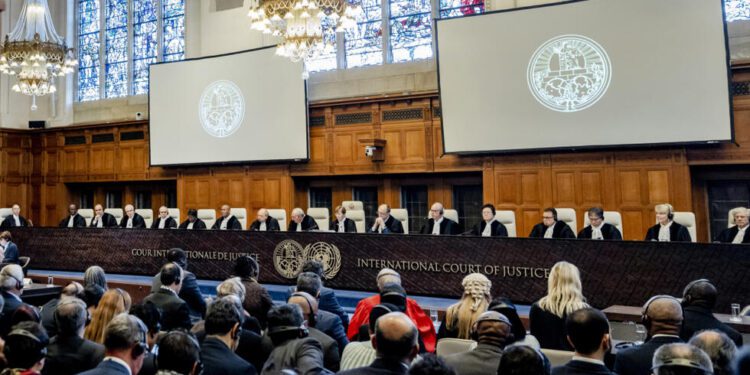In a recent development at the International Court of Justice (ICJ), South Africa’s plea for additional legal pressure on Israel to halt a potential offensive in the Gaza city of Rafah has been rejected. This decision, while significant, raises questions about the ongoing conflict in Gaza and the role of international legal mechanisms in addressing humanitarian crises. Let’s delve into the details of this ruling and its implications for the region.
Understanding the Background:
The ICJ has been at the center of a legal dispute between South Africa and Israel, with Pretoria accusing Israel of breaching the Genocide Convention through its military actions in Gaza. The court previously ordered Israel to take measures to protect Palestinian civilians and allow humanitarian aid into the region. However, South Africa sought further action from the ICJ in light of Israel’s preparations for a potential offensive in Rafah, a move that has sparked widespread concern.
The ICJ’s Decision:
Despite acknowledging the dire humanitarian situation in Gaza and the potential consequences of Israel’s actions, the ICJ opted not to impose additional provisional measures on Israel. The court emphasized that Israel is obligated to comply fully with its obligations under the Genocide Convention and the previous court order. While expressing concerns about the escalating crisis, the ICJ maintained that existing measures should suffice for now.
Implications for the Conflict:
The rejection of South Africa’s request underscores the complexities of international legal interventions in conflicts like the one in Gaza. While the ICJ has a mandate to address allegations of genocide and ensure compliance with international law, its decisions must navigate intricate political dynamics and practical considerations on the ground. The ruling also highlights the challenges of balancing humanitarian concerns with legal frameworks in conflict zones.
Looking Ahead:
As tensions persist in Gaza and the broader Middle East region, the ICJ’s decision is unlikely to bring an immediate resolution to the conflict. However, it serves as a reminder of the importance of international institutions in promoting accountability and upholding human rights. Moving forward, stakeholders must continue to engage in diplomatic efforts to address the root causes of the conflict and work towards a sustainable peace agreement that ensures the well-being of all parties involved.
The ICJ’s rejection of South Africa’s request for additional Gaza measures reflects the complexities of international law and diplomacy in addressing humanitarian crises. While the ruling may disappoint some observers, it underscores the ongoing efforts to hold parties accountable for their actions and uphold fundamental principles of justice and human rights. As the situation in Gaza continues to evolve, international cooperation and dialogue remain essential for achieving a lasting peace in the region.
















